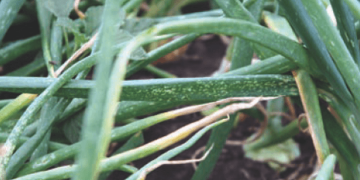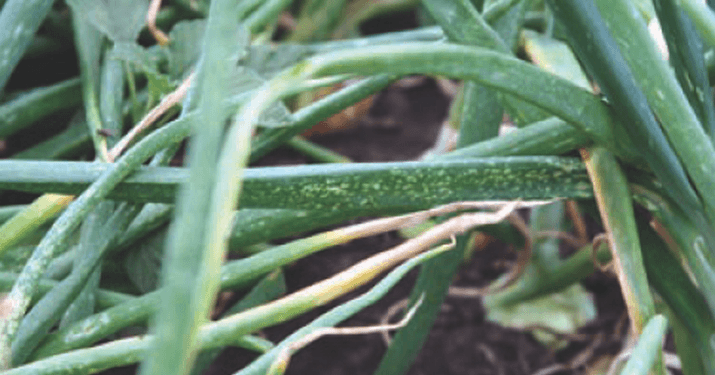CropProtection #PlantVirology #Agriculture #DiseaseControl #SustainableFarming
Onion mosaic virus (OMV) is a highly contagious disease that affects onions, chives, and garlic. It can cause significant damage to onion crops, resulting in reduced yields and poor-quality produce. OMV is transmitted through infected seeds, soil, and plant debris, as well as by aphids and other insect vectors. The disease is widespread in many onion-producing regions, making it a significant threat to the global onion industry.
The development of OMV can have severe consequences for onion farmers, as it can lead to substantial economic losses. The virus can cause stunted growth, yellowing of leaves, and decreased bulb size and quality. In severe cases, the virus can even kill the plant. Infected onions also become more susceptible to other diseases and pests, further reducing yields and quality.
To combat the spread of OMV, it is crucial to implement effective disease management strategies. This includes crop rotation, sanitation measures, and the use of disease-resistant onion varieties. Additionally, farmers can use insecticides and other treatments to control the spread of aphids, which are a significant vector for the virus.
Research is also ongoing to develop new and innovative ways to control the spread of OMV. This includes the use of RNA interference (RNAi) technology, which can target and eliminate the virus in infected plants. RNAi has shown promising results in laboratory experiments, but more research is needed to determine its efficacy in field conditions.
The Onion mosaic virus is a significant threat to onion production worldwide. The development of effective disease management strategies, including crop rotation, sanitation measures, and the use of disease-resistant onion varieties, is crucial to control the spread of the virus. Ongoing research into new and innovative ways to combat OMV, such as RNAi technology, offers hope for the future of onion farming.































